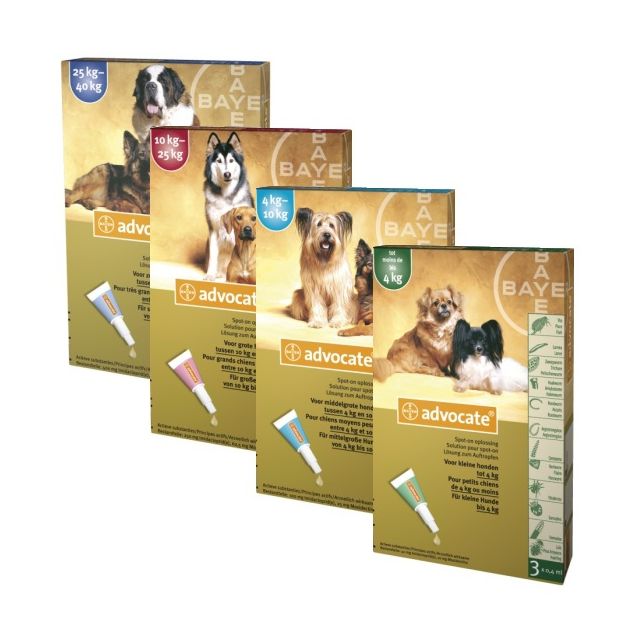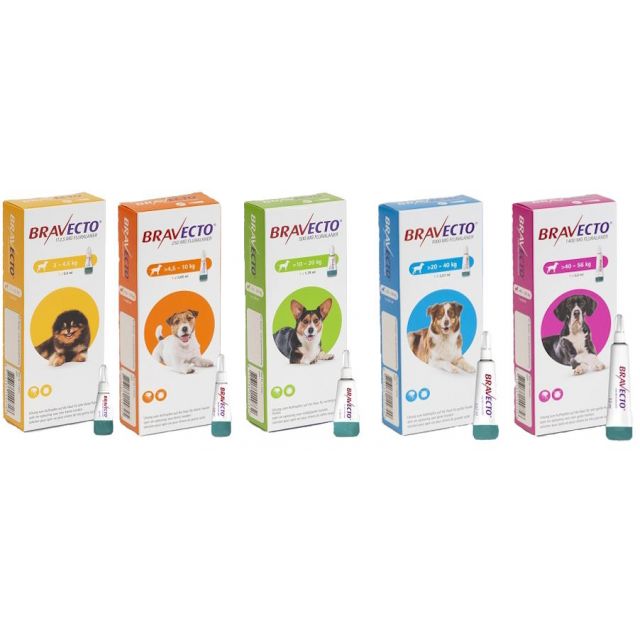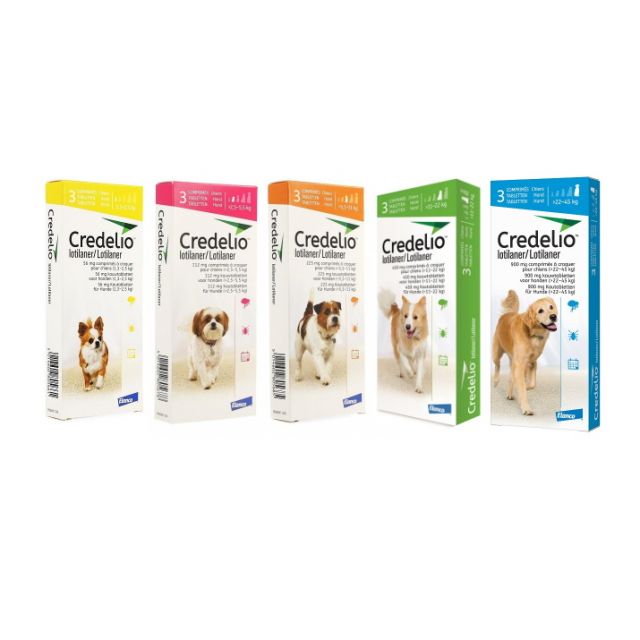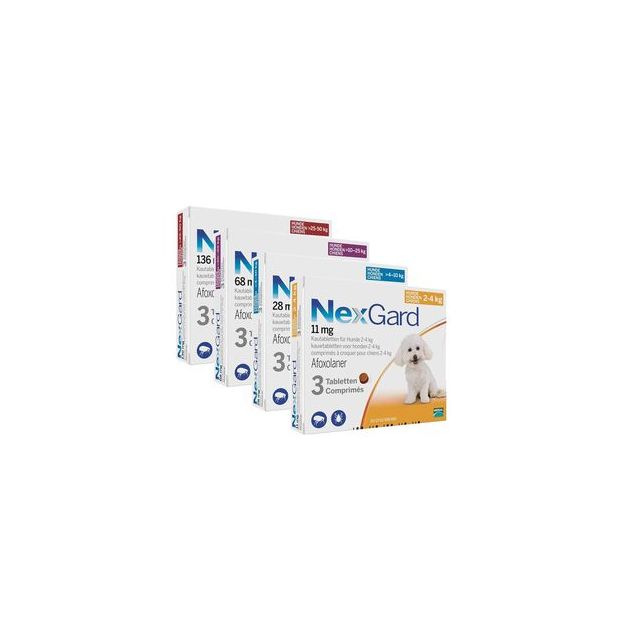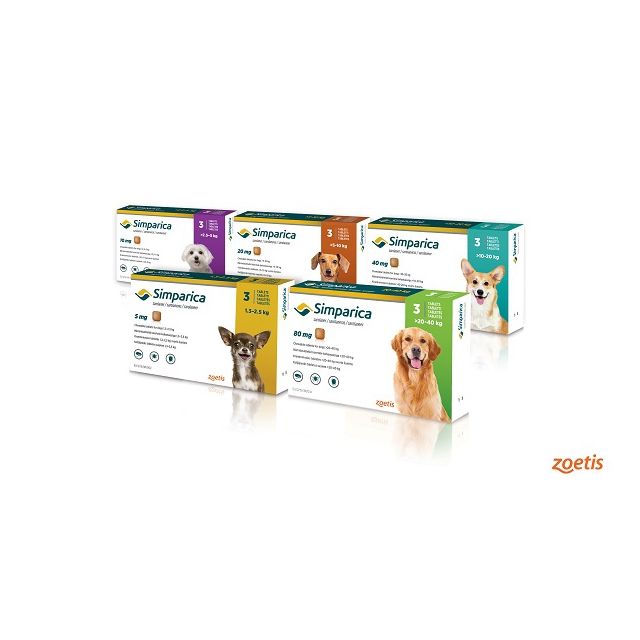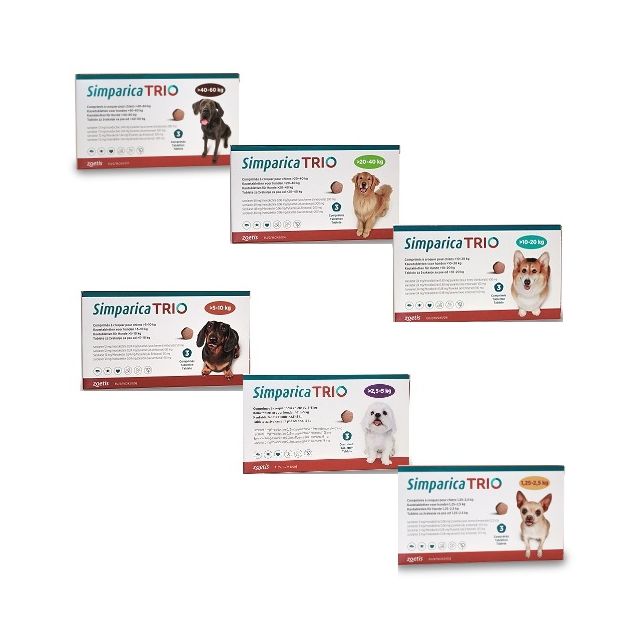Flea dermatitis in dogs
Fleas are always annoying; they cause itching and discomfort and are also considered 'dirty' by people. But did you know that if your dog has a flea allergy, it can experience severe itching from just a single flea bite? To prevent this, it is important to treat all pets in the house preventively against fleas throughout the entire year, even if you don't see them! Pharmacy4pets helps you prevent itching caused by a flea allergy!
How does a dog get a flea allergy?
When a flea bites, it injects saliva into the animal's skin. This saliva contains irritating substances, causing a small inflammation and mild itching. In animals with flea allergies, the dog's immune system reacts 'excessively' to the proteins (allergens) in the flea's saliva. Even a single bite can trigger a widespread inflammatory reaction.
Symptoms of flea allergy in dogs
The exaggerated immune response to the flea saliva causes severe itching and skin inflammations, such as hotspots. Dogs with flea allergies can experience itching all over their body. One of the most common areas for itching is the rear part of the body. A flea allergy is often seasonal. Fleas are most active in the warmer months, which is why many dogs have complaints during late summer and autumn. However, fleas can be active year-round, so symptoms can occur throughout the year.
Diagnosing a flea allergy
The symptoms and course of the complaints often provide an important clue. If the complaints occur mainly in summer and autumn, and especially if other pets in the household also have itching issues, flea allergy is likely. Fleas are not always found because animals with flea allergies often bite or lick off the fleas. Also, as mentioned earlier, dogs don't need to have many fleas to experience significant itching. The symptoms may resemble other skin problems such as food sensitivities or atopy. A skin test with flea allergens can help in diagnosing. Although 90% of dogs with flea allergies test positive, a negative test doesn't completely rule out the allergy. If the symptoms disappear after effective flea control, the diagnosis is confirmed.
Treating flea allergy in dogs
The only truly effective way to treat a dog with a flea allergy is to avoid contact with fleas. To do this, all animals in the house (and preferably any playmates or guests) must be treated with an effective flea product frequently throughout the entire year. In case of an existing infestation, it is also essential to treat the house. This means: vacuuming very thoroughly, with emphasis on sleeping areas, crevices, and cracks, washing blankets and cushions in hot water, and possibly spraying the house (and don't forget the vacuum bag!) with an environmental spray.
You can effectively treat fleas in your dog using tablets such as Frontpro or Adtab, spot-ons such as Advantix or Vectra 3D, or a collar such as Seresto. It's important to check the packaging or instructions to see how long the products are effective to ensure thorough control. If you also have a cat, it should of course also be treated. After all, dogs and cats have the same fleas. Some flea treatments for dogs can be dangerous for cats. Be careful when selecting a flea treatment if you have both a dog and a cat.
If the itching is severe or secondary infections have occurred from scratching, additional treatment with medication for itching, ointments, and shampoos may be necessary. When using shampoos, be sure they don't interfere with flea control if it's being administered as a spot-on treatment.
Can a flea allergy be prevented?
While any dog can develop a flea allergy from repeated exposure to fleas, some dogs are more sensitive than others. Once a pet becomes allergic, any flea bite will cause severe symptoms. It is therefore important to keep pets flea-free from an early age, as this reduces the chance of them developing an allergy. Read here to find out which products are safe for young puppies.
Comprehensive flea control for all pets in the household, year-round, is essential for dogs allergic to fleas. Pharmacy4pets is happy to help you choose the optimal flea treatment for your dog.
If you have any questions about flea allergies in dogs or our products, please contact us.


